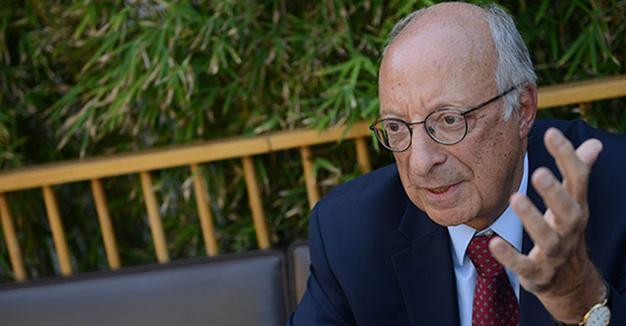Long-term military curfews a human rights violation, says former ECHR judge
Bahadır Özgür - ISTANBUL
 Long-term military curfews constitute a violation of the European Convention of Human Rights, former European Court of Human Rights (ECHR) judge Rıza Türmen has told daily Radikal, amid continued curfews in a number of towns in southeastern Turkey.
Long-term military curfews constitute a violation of the European Convention of Human Rights, former European Court of Human Rights (ECHR) judge Rıza Türmen has told daily Radikal, amid continued curfews in a number of towns in southeastern Turkey.Türmen, who is also currently an İzmir deputy for the main opposition Republican People’s Party’s (CHP), said long-term curfews constituted a “violation of state responsibility” and the ECHR would likely find Turkey guilty and rule for an interlocutory injunction of curfews.
He listed the state’s responsibilities as being to not kill its citizens deliberately, to take necessary precautions when its citizens’ lives are in danger, to conduct efficient investigations when its citizens’ right to life is violated, and to avoid inhumane treatment as principles that have been violated over the past months.
“Those people’s right to life is threatened because they cannot leave their houses. They cannot go to hospital, access water, etc.,” Türmen said.
“The state fails to cater for these needs, despite its responsibility to do so,” he added, pointing out that unidentified security personnel who commit crimes in the region are not subject to investigations.
In response to a question on the legal basis of military curfews, Türmen said declaring martial law or a state of emergency was necessary in order to enforce long-term curfews, but this has not been done in Turkey.
Under current circumstances, state-appointed local governors’ mandates are used as the legal basis for curfews in southeastern towns.
“Governors have no democratic mandate during mass violations of human rights,” Türmen said, adding that asserting such an authority violated both the ECHR and Turkey’s constitution.
Türmen also warned that the European Convention of Human Rights was likely to find Turkey guilty over its current practices in southeastern districts and rule for an interlocutory injunction of curfews, which Turkey would be forced to immediately comply with.
“If Turkey decides to disobey an ECHR order, the court would ask the European Commission to apply pressure. This would put Turkey in a difficult situation in the international arena,” he said.
The CHP deputy also cautioned against lifting the immunities of Kurdish problem-focused Peoples’ Democratic Party (HDP) co-chairs Selahattin Demirtaş and Figen Yüksekdağ, arguing that this would further polarize Turkish society and worsen the situation.
The Justice Ministry is set to prepare a report for the ECHR on the situation in southeastern towns where clashes between the security forces and outlawed Kurdistan Workers’ Party (PKK) militants continue to rage under military curfews.
Diyarbakır Bar Association lawyer Muhammed Neşet Girasun and Batman Bar Association lawyer Erkan Şenses have applied to the ECHR on behalf of Ömer Elçi, resident of the southeastern town of Cizre, to end operations and lift the curfew, which has been in effect since Dec. 14, 2015.
Ankara Bar Association lawyer Oya Aydın has also applied to the ECHR on behalf of six people in Cizre and in the Sur district in the center of the southeastern city Diyarbakır.
Aydın demanded the lifting of the curfew announced by the Şırnak Governor’s Office on Dec. 14, 2015, and the ECHR demanded a response from Turkey before Jan. 8.
The ECHR asked three particular questions to Ankara over the issue: The legal basis for the curfews; whether the needs of locals living in curfew-hit towns are met, including health services; and whether the state can provide a safe exit route to locals if they demand to leave areas under curfew.
















